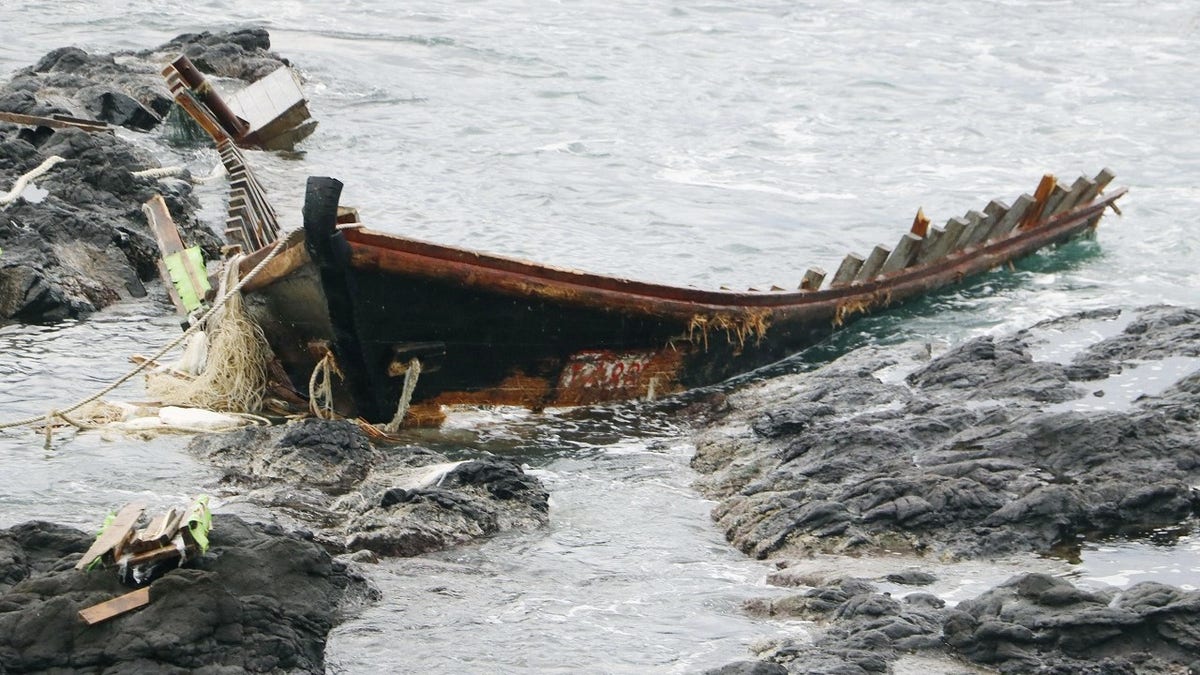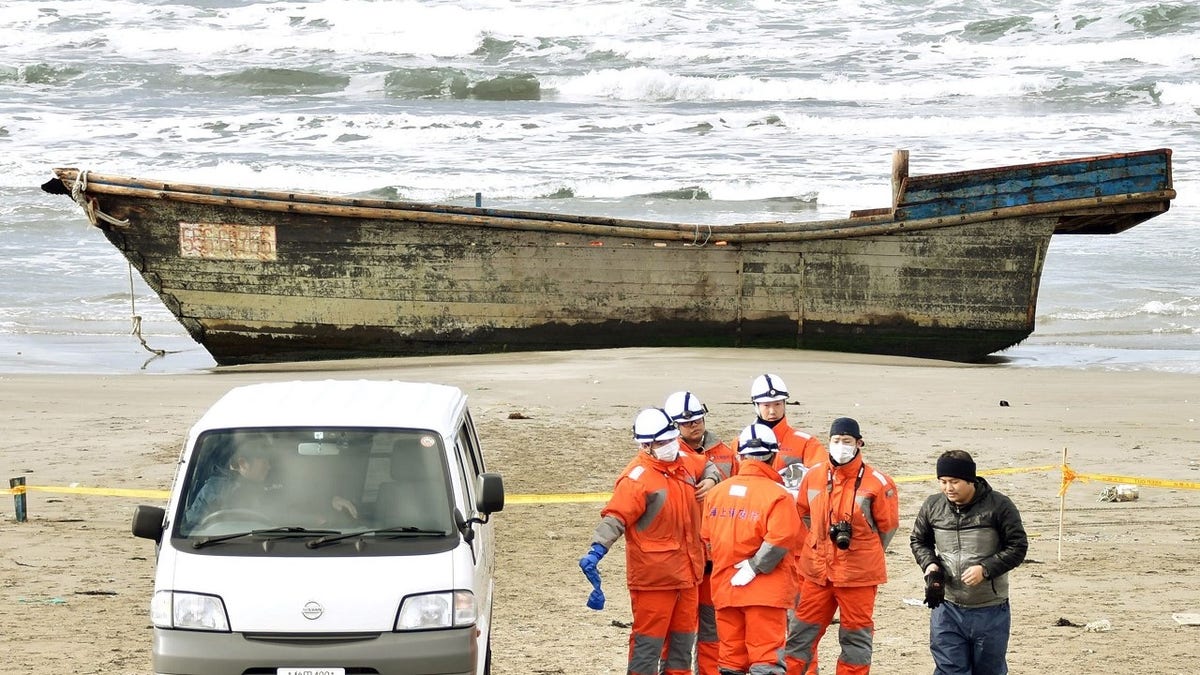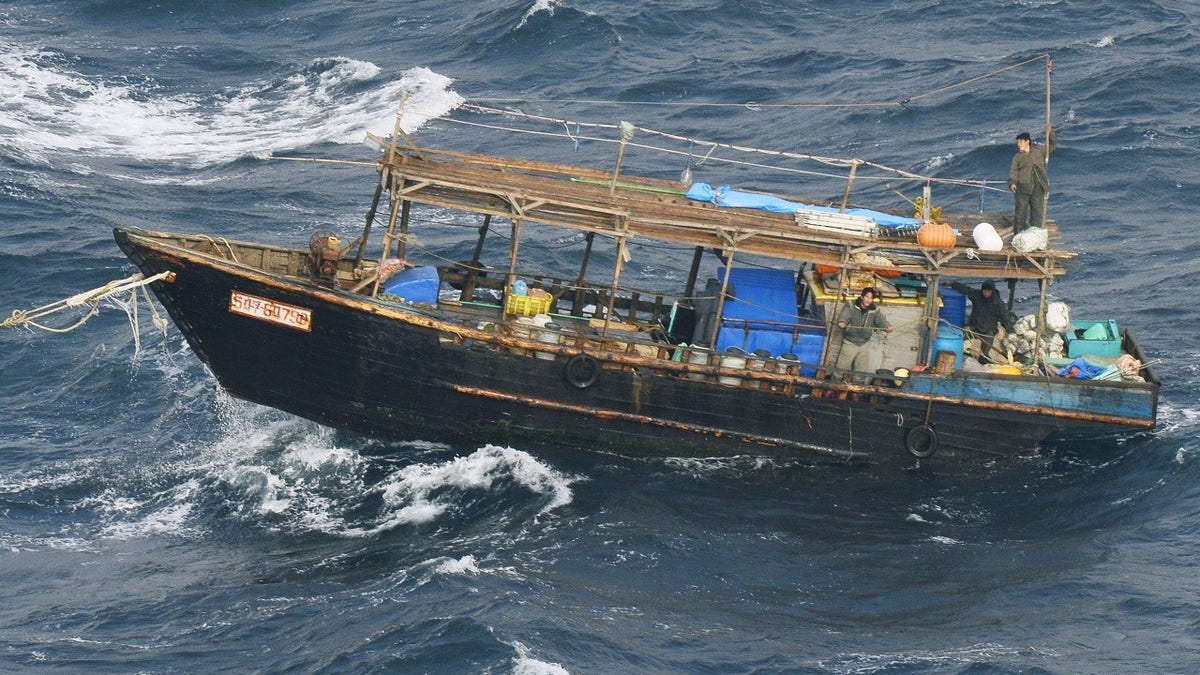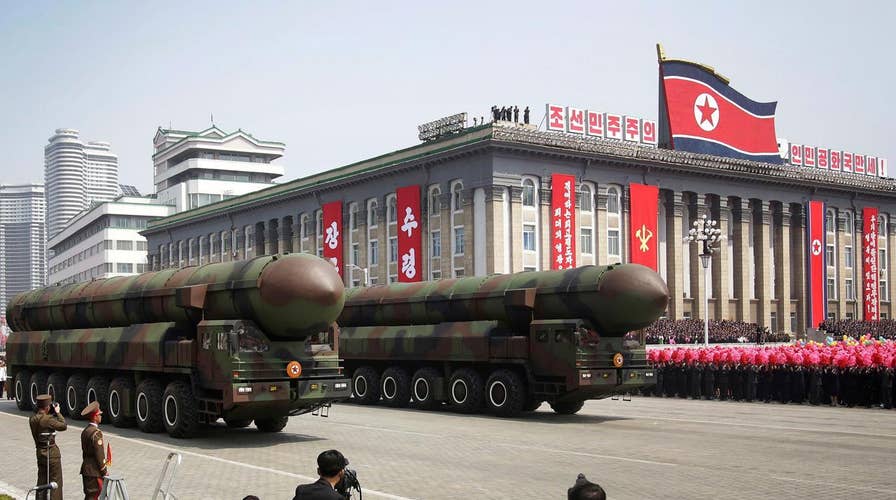US emerging as the leader in taking on the North Korea threat?
Hoover Institution Research Fellow Kiron Skinner on efforts to stop the mounting threat from North Korea.
The surge of North Korean “ghost ships” washing up along Japan’s coast in recent weeks -- including some crafts filled with skeletal remains -- is due to the Hermit Kingdom’s severe food shortages and the result of mounting sanctions against Kim Jong Un, analysts said Tuesday.
Three more bodies, believed to be those of North Koreans, were recovered off the coast of Sakata in Yamagata prefecture Monday, two days after a dilapidated empty boat washed ashore, Japan’s coast guard said. The discovery is just one of 28 boats that have reached the Japanese shoreline facing North Korea this year -- about four more compared to last year. About 650 miles sit between North Korea and Japan's coast.
Usually, only empty vessels are found. But at least 18 bodies have been discovered this year. In late November, a 22-foot wooden boat was found containing eight bodies -- described as “skeletonized” because they were so decomposed.

A partially destroyed boat washed up along the Japanese coast earlier this week. (Kyodo News)
The decrepit state of the 'ghost ships' and bodies has made it difficult for authorities to decipher how the ill-fated seafarers died and ended up in Japanese waters. Pyon Jinil, a North Korea watcher and writer, told AFP that North Koreans are left starving due to recent economic sanctions imposed by the United Nations in response to Pyongyang's nuclear and missile tests.
"Every North Korean person is now receiving only 300 grams of food per day," Pyon said. "In order to plug the shortages of staple food like rice and corn, they want to buy from China, but they don't have hard currency to buy food, either.”
Toshimitsu Shigemura, professor emeritus of Waseda University and a North Korea expert, also noted the desperation to meet fishing harvest quotas has pushed fishermen to travel farther out. Kim Jong Un is seeking to make North Korea self-sufficient in food, but its sources of protein continues to fall. The rogue nation remains vulnerable to health problems caused by the lack of a varied, balanced diet.

Eight skeletal remains were found in a boat, one of the earlier gruesome discoveries. (Kyodo via Reuters)
"Fishermen are desperate to meet annual catch goals, which are elevated to higher levels every year," Shigemura said.
Pyon added: "Since then, fishermen have been frantically trying to meet [annual] catch goals, but what's different this year is that they are traveling to distant waters in their fragile boats.”
Pyon said Kim Jong Un sold part of North Korea’s fishing rights in the Yellow Sea to China to pump more foreign currency into the regime’s economy. In turn, the despot told fishermen to “establish a fishing base in the Sea of Japan.”

In November 2017, 28 vessels were detected -- up from just four in November 2016. (Kyodo News)
But the move might also be a violation of Japan’s 200-nautical mile exclusive economic zone west of Japanese northern coasts, an area known for being a rich fishing ground.
But the North Korean boats can barely stand the rough seas during their long journeys and often fall apart before reaching Japan.
The Associated Press contributed to this report.





















